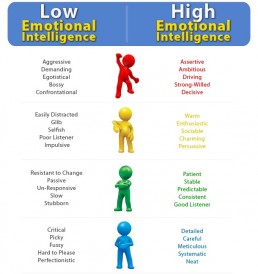The Fundamentals of How a Franchise Really Works
Discover the basic elements of how a franchise works and the benefits it brings!
Have you ever noticed that there are certain phrases or terms that are thrown around frequently at business meetings or at dinner parties that very few people truly understand. Many of us assume that we are the only ones in the room that don’t grasp the finer details of the subject in question, when in reality, the majority of the population doesn’t fully understand the general concept.
Some current examples may be bitcoin, blockchain, or search engine optimization. There are also some classic examples such as escrow accounts, stock derivatives and franchises. Yes, we all have used or heard the word franchise in a business or personal setting, but do you really know how a franchise works? What are the legal permaniters? How does a franchise owner make money? Can you do whatever you wish with a franchise location? Do you own it?
Just like anything else, the franchising model may seem a little complicated at first but if it is broken down into it’s fundamental elements, it is actually very straightforward- and profitable.

The Basic Definition of a Franchise
A franchise is essentially an agreement where the owner of a trademark(s) and a proven business model allows another to use those same trademarks and models in exchange for a recurring payment, a fixed fee, or a percentage of the gross sales.
The owner or the company that is licensing the business methods and trademarks is know as the franchisor. In the franchising agreements that we enter into, Joey’s is the franchisor. The individual who has decided to use the business model in exchange for a fee is the franchisee, who we will call Danielle.
Danielle would then open a clone of a Joey’s restaurant and run the establishment with the continual support of Joey’s head office for a predetermined amount of time, benefitting from the profits earned outside of costs and franchise fees.
What’s the Difference Between Starting a Franchise vs Starting Your Own Business?
When you decide to take the leap of faith and become a business owner, you are venturing into the unknown. Every decision is undetermined and must be decided by you as the owner. There is no guide or plan, you have the freedom to operate as you please. All the costs and the risks fall on your shoulders which is why about 80% of all independent businesses that are started fail within the first year of operation.
In our example from above, when Danielle decides to enter into a franchise agreement with Joey’s, she will be provided a business blueprint, or step-by-step guide to setting up her new restaurant and the team that will run it. She will have to follow specific rules but she will also have all of the details of the operation provided to her including approved marketing materials, signage, business hours, etc.
So what is the biggest difference between the solo entrepreneur and Danielle, our newest Joey’s franchisee? Danielle is utilizing and building upon the proven success of Joey’s model and brand while the entrepreneur is risking at least an 80% risk of failure with an unproven idea.
A Franchise Analogy

Here is a different way to think about a franchise agreement. Let’s say you are really interested in delivering supplies in your city. Becoming a franchisee is like renting a car to complete that task. You know the rental car is in working condition and that it is still efficient if it is in the rental lineup. If anything goes wrong with the car, the rental company will help to solve your issue. Renting a car is a straightforward process, where you only have to follow a few simple steps and you are in business delivering your materials.
Deciding to start your own business is like building your own car. You know you need a car to start your delivery services but you may not be a car expert. You have witnessed people building cars before and you have seen them everyday on the street but you are not sure where to start when it comes to the mechanical details. There is no one there to hold your hand- building the car is in your hands alone.
What are the Main Benefits of Starting a Franchise?
- An established and trusted brand and business model
- Monetary rewards are directly related to your efforts
- Assistance and training from head office
- Indirectly benefit from advertising from other locations
- Less risk
At the end of the day, if you partner with the right franchise group, you will greatly reduce your risk with a proven formula for results and revenues. With a Joey’s franchise, you can have your business up and running quickly with very few unknowns which means you will become profitable sooner.
Have you always wanted to run your own business but want to minimize the risk?
Get in touch with our team today to see if becoming a Joey’s franchisee is the right fit for you!
Sustainability
At Joey's Franchise Group we are doing what we can to mitigate our impact on fisheries and ultimately our environment. Our brands Joey's Restaurants and Joey's Urban have teamed up with Ocean Wise, a Vancouver Aquarium Conservation Program, to ensure that we're on the right path to sustainability. Check it out here; Ocean Wise and Joey's
MVP Modern Barbers in Canadian Business Franchise Magazine
Take a read of this article about our Franchise Partner Jodi Tucker at our South Surrey location. Jodi worked with MVP Modern Barbers for many years in our Kelowna Franchise before shearing off to the Lower Mainland to open her own Franchise. (see what i did there! haha Shear).
MVP Modern Barbers Article in Canadian Business Franchise
Emotional Intelligence
 Emotional Intelligence
Emotional Intelligence
Developing strong “people skills”
We probably all know people, either at work or in our personal lives, who are really good listeners. No matter what kind of situation we’re in, they always seem to know just what to say – and how to say it – so that we’re not offended or upset. They’re caring and considerate, and even if we don’t find a solution to our problem, we usually leave feeling more hopeful and optimistic.
We probably also know people who are masters at managing their emotions. They don’t get angry in stressful situations. Instead, they have the ability to look at a problem and calmly find a solution. They’re excellent decision makers, and they know when to trust their intuition. Regardless of their strengths, however, they’re usually willing to look at themselves honestly. They take criticism well, and they know when to use it to improve their performance.
People like this have a high degree of emotional intelligence, or EI. They know themselves very well, and they’re also able to sense the emotional needs of others.
Would you like to be more like this?
As more and more people accept that emotional intelligence is just as important to professional success as technical ability, organizations are increasingly using EI when they hire and promote.
For example, one large cosmetics company recently revised their hiring process for salespeople to choose candidates based on emotional intelligence. The result? Salespeople hired with the new system have sold, on average, $91,000 more than salespeople selected under the old system. There has also been significantly lower staff turnover among the group chosen for their emotional intelligence.
So, what exactly is emotional intelligence, and what can you do to improve yours?
What is Emotional Intelligence?
We all have different personalities, different wants and needs, and different ways of showing our emotions. Navigating through this all takes tact and cleverness – especially if we hope to succeed in life. This is where emotional intelligence becomes important.
Emotional intelligence is the ability to recognize your emotions, understand what they’re telling you, and realize how your emotions affect people around you. Emotional intelligence also involves your perception of others: when you understand how they feel, this allows you to manage relationships more effectively.
People with high emotional intelligence are usually successful in most things they do. Why? Because they’re the ones that others want on their team. When people with high EI send an email, it gets answered. When they need help, they get it. Because they make others feel good, they go through life much more easily than people who are easily angered or upset.
Characteristics of Emotional Intelligence
Daniel Goleman, an American psychologist, developed a framework of five elements that define emotional intelligence:
- Self-Awareness – People with high emotional intelligence are usually very self-aware. They understand their emotions, and because of this, they don’t let their feelings rule them. They’re confident – because they trust their intuition and don’t let their emotions get out of control.They’re also willing to take an honest look at themselves. They know their strengths and weaknesses, and they work on these areas so they can perform better. Many people believe that this self-awareness is the most important part of emotional intelligence.
- Self-Regulation – This is the ability to control emotions and impulses. People who self-regulate typically don’t allow themselves to become too angry or jealous, and they don’t make impulsive, careless decisions. They think before they act. Characteristics of self-regulation are thoughtfulness, comfort with change, integrity, and the ability to say no.
- Motivation – People with a high degree of emotional intelligence are usually motivated. They’re willing to defer immediate results for long-term success. They’re highly productive, love a challenge, and are very effective in whatever they do.
- Empathy – This is perhaps the second-most important element of emotional intelligence. Empathy is the ability to identify with and understand the wants, needs, and viewpoints of those around you. People with empathy are good at recognizing the feelings of others, even when those feelings may not be obvious. As a result, empathetic people are usually excellent at managing relationships, listening, and relating to others. They avoid stereotyping and judging too quickly, and they live their lives in a very open, honest way.
- Social Skills – It’s usually easy to talk to and like people with good social skills, another sign of high emotional intelligence. Those with strong social skills are typically team players. Rather than focus on their own success first, they help others develop and shine. They can manage disputes, are excellent communicators, and are masters at building and maintaining relationships.
As you’ve probably determined, emotional intelligence can be a key to success in your life – especially in your career. The ability to manage people and relationships is very important in all leaders, so developing and using youremotional intelligence can be a good way to show others the leader inside of you.
How to Improve Your Emotional Intelligence
The good news is that emotional intelligence CAN be taught and developed. Many books and tests are available to help you determine your current EI, and identify where you may need to do some work. You can also use these tips:
- Observe how you react to people. Do you rush to judgment before you know all of the facts? Do you stereotype? Look honestly at how you think and interact with other people. Try to put yourself in their place, and be more open and accepting of their perspectives and needs.
- Look at your work environment. Do you seek attention for your accomplishments? Humility can be a wonderful quality, and it doesn’t mean that you’re shy or lack self-confidence. When you practice humility, you say that you know what you did, and you can be quietly confident about it. Give others a chance to shine – put the focus on them, and don’t worry too much about getting praise for yourself.
- Do a self-evaluation. What are your weaknesses? Are you willing to accept that you’re not perfect and that you could work on some areas to make yourself a better person? Have the courage to look at yourself honestly – it can change your life.
- Examine how you react to stressful situations. Do you become upset every time there’s a delay or something doesn’t happen the way you want? Do you blame others or become angry at them, even when it’s not their fault? The ability to stay calm and in control in difficult situations is highly valued – in the business world and outside it. Keep your emotions under control when things go wrong.
- Take responsibility for your actions. If you hurt someone’s feelings, apologize directly – don’t ignore what you did or avoid the person. People are usually more willing to forgive and forget if you make an honest attempt to make things right.
- Examine how your actions will affect others – before you take those actions. If your decision will impact others, put yourself in their place. How will they feel if you do this? Would you want that experience? If you must take the action, how can you help others deal with the effects?
Key Points
Although “regular” intelligence is important to success in life, emotional intelligence is key to relating well to others and achieving your goals. Many people believe that emotional intelligence is at least as important as regular intelligence, and many companies now use EI testing to hire new staff.
Emotional intelligence is an awareness of your actions and feelings – and how they affect those around you. It also means that you value others, listen to their wants and needs, and are able to empathize or identify with them on many different levels.
Franchise Advice - Purchasing Power
 Purchasing Power. Does the franchisor use the collective buying power of the total system to get discounts on supplies and inventory beyond what an independent operator could achieve? This factor is one of the biggest advantages of joining a well-run franchise systemand should offset much of the upfront fees associated with being a franchisee. Make sure to ask for specific examples, pro or con, in terms of the franchisor’s attempt to leverage this franchise system advantage.
Purchasing Power. Does the franchisor use the collective buying power of the total system to get discounts on supplies and inventory beyond what an independent operator could achieve? This factor is one of the biggest advantages of joining a well-run franchise systemand should offset much of the upfront fees associated with being a franchisee. Make sure to ask for specific examples, pro or con, in terms of the franchisor’s attempt to leverage this franchise system advantage.
At Joey’s Franchise Group, our collective purchasing power comes from vertically integrating our whole system. Our in-house purchasing team not only buys for our system but leverages our buying for other sources as well. This means we’re not just buying products for our system from our vendors but that we’re buying for multiple customers from our vendors. Buy more, pay less.
We’ve also integrated our printing, marketing and development requirements, lowering the standards costs our franchise partners pay for our core services.
Rob Hilditch – VP of Business Development
joeys.joeys urban.MVP modern barbers.homes & land magazine
The Urban Decker - Joey's Food Truck

 Coming Soon! To Western Canada with its launch at the 2014 Calgary Stampede.
Coming Soon! To Western Canada with its launch at the 2014 Calgary Stampede.
We took an original 1965 Leyland Atlantean, British Double Decker Bus and converted it into the craziest food truck around. We’ve been busy outfitting the bus with the latest in commercial kitchen equipment to serve up our Famous Fish & Chips, #epicfishtacos, Deep Fried Sushi and our Frank’s RedHot Vicious Fish on a stick!.
The Success Indicator
 People measure success in different ways. Potential franchisees measure it in vastly different ways. For the last few years I have been using this simple categorized system by Mary Ellen Tribby (attached picture). I use these indicators in the picture from each side to ask open ended questions that will show me which side of the scale a potential franchisee will fall on.
People measure success in different ways. Potential franchisees measure it in vastly different ways. For the last few years I have been using this simple categorized system by Mary Ellen Tribby (attached picture). I use these indicators in the picture from each side to ask open ended questions that will show me which side of the scale a potential franchisee will fall on.
Simple, yet elegant, and so far, accurate. Keep your system simple and straight forward. Complicating your processes and systems only makes it more difficult for you and franchisees potential success.
Rob Hilditch
Joey's Restaurants | Joey's Urban | MVP Moderb Barbers | Homes & Land Magazine
7 Reasons I’ll Turn Down a Job After Interviewing With You
This article is great and it also translates to a potential Franchisee interviewing Franchisors or vice versa……. Enjoy.
RACHEL DOTSON | March 5, 2013 |
Interviewing is an art-form for both the job seeker and the hiring manager. A simple mistake by either party can raise enough doubt to leave the other looking elsewhere. After much reflection on what’s turned me off to a job in the past, I’ve come up with seven interview red flags that will leave me saying, “Thanks, but no thanks” to your job offer.
1. You’re Negative
If you’re bad-mouthing the company, other employees, your workload, or even yourself, then chances are slim that I’ll come on board as your newest employee. Why? Because negativity is toxic. It tells me that morale is low and that you don’t enjoy your job. I recognize it’s possible that you’re just having a bad day, but it’s just too big of a risk to take.
2. You Asked Me Obscure Questions Just for the Sake of Doing It
Yes, I know why manholes are round; what I don’t know is why you are asking me this question. Is it because Google asks it? Is it because you want to see if I can think on my feet? Or is it some other reason that neither you nor I am aware of? Rather than waste our time with such a silly and off-putting question, ask me a situational question that’s relevant to my prospective job.
3. You Talk Too Much
I’m delighted that you’re enjoying our time together, really, I am. But I’m a bit worried that I haven’t been able to get a word in edgewise. You see, if I haven’t done any of the talking, then you can’t possibly know if I’ll be a good fit for this position. That makes me nervous. How can I believe in my own ability to excel at this position if you haven’t properly assessed my abilities and fit?
4. You Talk Too Little
Let’s look at the opposite side of the point above. If you don’t tell me enough about the job, the company, and so on, then I cannot, in good faith, agree to devote years of my life to you. When I ask you questions about why the position is vacant, what a typical day is like, and what the goals of the company are, I expect solid, well-thought-out answers. It’s these answers that will help me determine whether our values and goals align.
5. You Don’t Tell Me About Your Company Culture
If I’m going to be spending more time with you than with my friends and family, I want to know I’m going to be in a fun and positive working environment. You don’t have to provide organic lunches or have a company bar to show me you’re a great company to be at. While these perks would be nice, I’d much rather know about the people and the culture. How do employees interact with each other? How are employees recognized for a job well done? Do colleagues go to lunch together or see each other outside of the office? If so, do they do this because it’s mandated or because they genuinely enjoy spending time together?
6. You’re Unprepared
I’m busy, you’re busy, we’re all busy. I get it. People are spread too thin. But when I spend hours preparing for my interview and take time out of my day to attend said interview, I expect you to show me the same level of professionalism and respect that I show you. So please, don’t make me wait in the lobby for half an hour, don’t take five minutes to review my job application in front of me, and don’t make up the interview questions as you go along.
7. Your Interview Practices Are Illegal
So you want to know if and when I’m planning on getting married and you feel it necessary to let me know that you typically hire from a certain age group. The fact that you’re bringing these items up tells me one of two things: 1) you haven’t taken the time as a hiring manager to educate yourself on employment law, or 2) you’re discriminatory. The best case scenario here is that you don’t know how to do your job (and your company hasn’t bothered to train you how), and the worst is that the organization is sexist, ageist, or some other “ist” that I don’t care to be around.
Trust your instincts
 When you buy a business franchise of any sort you are entering into a business partnership, in which your relationship with the franchisor (or 'principle'), and their people, will be absolutely crucial to your success. You must be able to trust and work with the franchisor and the franchise company's staff - especially the directors and senior managers. If you have the slightest doubt as to the integrity of any of the people within the franchising company think extremely carefully before you go ahead with them. Trust your instincts - if you feel uncomfortable during the selection and recruitment stage it is likely that there are grounds for concern. Feeling uncomfortable about trust and relationships may not necessarily mean that the franchisor is untrustworthy, but it does probably mean that the 'fit' may not be right for you. Relationships are personal things - some people you'll get on with and see eye to eye with; others you may not. You will be more likely to succeed, and receive a good level of appropriate support, if there is a good emotional 'fit' with the franchisor.
When you buy a business franchise of any sort you are entering into a business partnership, in which your relationship with the franchisor (or 'principle'), and their people, will be absolutely crucial to your success. You must be able to trust and work with the franchisor and the franchise company's staff - especially the directors and senior managers. If you have the slightest doubt as to the integrity of any of the people within the franchising company think extremely carefully before you go ahead with them. Trust your instincts - if you feel uncomfortable during the selection and recruitment stage it is likely that there are grounds for concern. Feeling uncomfortable about trust and relationships may not necessarily mean that the franchisor is untrustworthy, but it does probably mean that the 'fit' may not be right for you. Relationships are personal things - some people you'll get on with and see eye to eye with; others you may not. You will be more likely to succeed, and receive a good level of appropriate support, if there is a good emotional 'fit' with the franchisor.
Trust your instincts to tell you whether the franchising company has a similar value system and ethos to your own. If you value the customer above all else, do they too? If they do not then they may not be fully in tune with your style and business philosophy. Finding a good emotional and philosophical match with your chosen franchising company is almost as important as choosing the right sort of business. Given sympathetic and genuinely relevant support we can achieve almost anything - be sure that your franchise partner will be able to provide it.
Choose your Passion and make franchising Fun.
 Buying a franchise that you will enjoy is the most important factor of all. Most businesses – all types of business, not just franchises – succeed when the owner truly enjoys the products and/or services that the business supplies. If you really enjoy and are interested in the products and services, and the customers and markets, then you will learn and gather information and skills rapidly. If you enjoy the business it is likely that you will possess a good deal of knowledge about it already. Being an expert and a specialist at what you do is essential to running any successful business – enjoyment and expertise naturally go hand-in-hand.
Buying a franchise that you will enjoy is the most important factor of all. Most businesses – all types of business, not just franchises – succeed when the owner truly enjoys the products and/or services that the business supplies. If you really enjoy and are interested in the products and services, and the customers and markets, then you will learn and gather information and skills rapidly. If you enjoy the business it is likely that you will possess a good deal of knowledge about it already. Being an expert and a specialist at what you do is essential to running any successful business – enjoyment and expertise naturally go hand-in-hand.
You will find it easy to specialise and become an expert in an area that you enjoy quite simply because it is a pleasure and a joy – not a chore. When you work in a service or product area that you love, you will enthuse about it, and your enthusiasm will be conveyed to your customers and everyone you meet. People like to deal with enthusiastic suppliers – people who love their work. When you enjoy the subject of your franchise business you will naturally put in more effort than if you worked in a field that fails to inspire and excite you. People who love their work always work hard and put in more hours. Their work becomes part of their life, rather than it being just a means to pay for their living costs.
by Rob Hilditch, a.k.a. Joey Franchise






